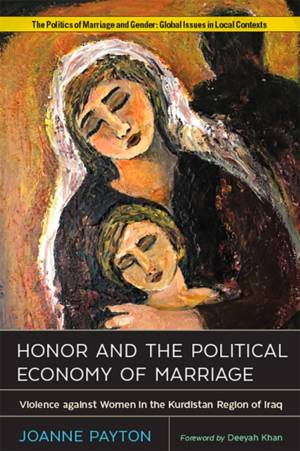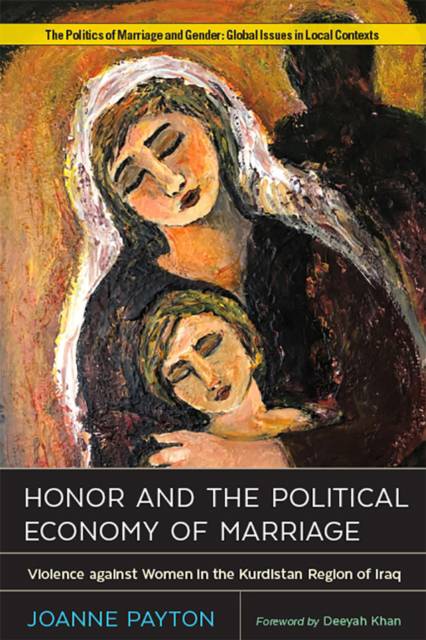
- Afhalen na 1 uur in een winkel met voorraad
- Gratis thuislevering in België vanaf € 30
- Ruim aanbod met 7 miljoen producten
- Afhalen na 1 uur in een winkel met voorraad
- Gratis thuislevering in België vanaf € 30
- Ruim aanbod met 7 miljoen producten
Zoeken
Honor and the Political Economy of Marriage
Violence Against Women in the Kurdistan Region of Iraq
Joanne Payton
€ 173,45
+ 346 punten
Uitvoering
Omschrijving
'Honor' is used as a justification for violence perpetrated against women and girls considered to have violated social taboos related to sexual behavior. Several 'honor'-based murders of Kurdish women, such as Fadime Sahindal, Banaz Mahmod and Du'a Khalil Aswad, and campaigns against 'honor'-based violence by Kurdish feminists have drawn international attention to this phenomenon within Kurdish communities. Honor and the Political Economy of Marriage provides a description of 'honor'-based violence that focuses upon the structure of the family rather than the perpetrator's culture. The author, Joanne Payton, argues that within societies primarily organized by familial and marital connections, women's 'honor' is a form of symbolic capital within a 'political economy' in which marriage organizes intergroup connections.
Drawing on statistical analysis of original data contextualized with historical and anthropological readings, Payton explores forms of marriage and their relationship to 'honor', sketching changing norms around the familial control of women from agrarian/pastoral roots to the contemporary era.
Drawing on statistical analysis of original data contextualized with historical and anthropological readings, Payton explores forms of marriage and their relationship to 'honor', sketching changing norms around the familial control of women from agrarian/pastoral roots to the contemporary era.
Specificaties
Betrokkenen
- Auteur(s):
- Uitgeverij:
Inhoud
- Aantal bladzijden:
- 192
- Taal:
- Engels
- Reeks:
Eigenschappen
- Productcode (EAN):
- 9781978801721
- Verschijningsdatum:
- 15/11/2019
- Uitvoering:
- Hardcover
- Formaat:
- Genaaid
- Afmetingen:
- 155 mm x 231 mm
- Gewicht:
- 408 g

Alleen bij Standaard Boekhandel
+ 346 punten op je klantenkaart van Standaard Boekhandel
Beoordelingen
We publiceren alleen reviews die voldoen aan de voorwaarden voor reviews. Bekijk onze voorwaarden voor reviews.












